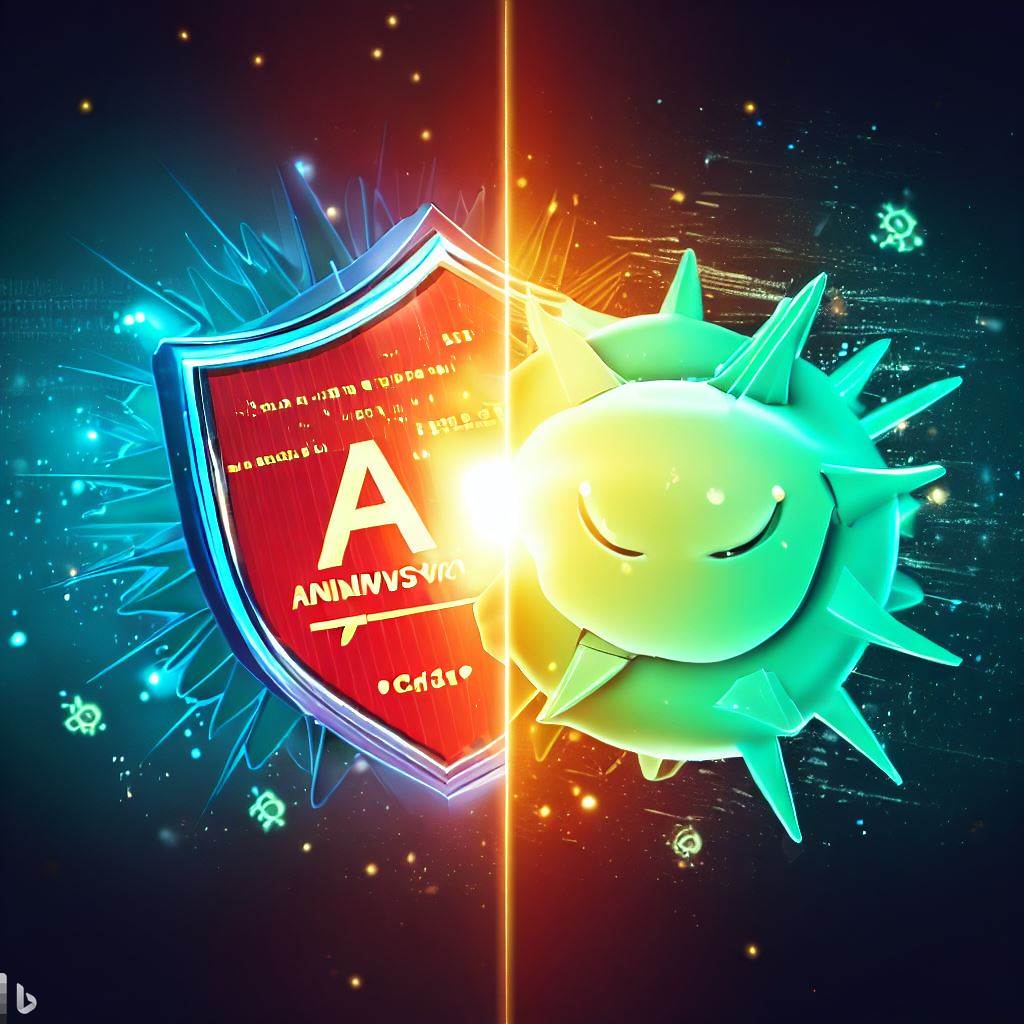
Estimated reading time: 5 minutes
Cybersecurity has become crucial for businesses of all sizes and industries. The growing complexity of cyber threats has made it necessary to use increasingly advanced tools and services to protect networks and devices. In this article, we will look at the differences between traditional antivirus software and a Security Operations Center (SOC) service with Endpoint Detection and Response (EDR) that also includes Next Generation Antivirus (NGA). We will discover how these two approaches differ and how the SOCaaS service [EDR] of Secure Online Desktop can increase corporate security.
Antivirus: basic protection
Operation of antiviruses
An antivirus is software designed to protect your computer or device from cyber threats such as viruses, malware, spyware and other forms of malicious software. Antiviruses work primarily by scanning the files on your system, comparing each file against a large database of known digital signatures associated with known malware. If a match is found, the antivirus can block or quarantine the file to prevent it from running.
Limitations of (traditional) antiviruses
Traditional antivirus offers basic protection and are generally effective at detecting and blocking the most common and well-known threats. However, they have some limitations:
- Responsiveness: Antiviruses rely on digital signatures to identify malware, which means they are only effective against already known threats. New malware or existing malware variants can evade detection.
- Lack of defense against advanced attacks: Antiviruses are not designed to defend against complex, targeted attacks, such as those perpetrated by expert hackers or organized cybercrime groups.
- Signature-only detection: Antiviruses cannot detect suspicious behavior or anomalies in the system, which limits their ability to identify and block emerging and sophisticated threats.
SOC service with EDR and Next Generation Antivirus: advanced protection
What is a SOC service?
A Security Operations Center (SOC) is a centralized command center responsible for an organization’s cybersecurity. A SOC continuously monitors networks, devices and systems to identify and respond to cyber threats. A SOC service can be internal or external to the organization, as is the case with SOC-as-a-Service (SOCaaS), where an external vendor provides managed security services.
Endpoint Detection and Response (EDR)
EDR is a security technology that monitors and analyzes data from endpoint devices (such as computers, laptops and mobile devices) to detect, prevent and respond to cyber attacks. Unlike antivirus, EDR relies on behavioral analysis and machine learning techniques to identify known and unknown threats.
Next Generation Antivirus (NGA)
A Next Generation Antivirus (NGA) is an evolution of traditional antiviruses, designed to provide more complete and advanced protection against cyber threats. An NGA combines the signature-based detection capabilities of traditional antivirus with advanced techniques such as sandboxing, machine learning and behavioral analysis to identify and block a wide range of threats, including those that are unknown or evolving.
Differences between antivirus and SOC service with EDR and NGA
- Threat coverage: While antiviruses offer basic protection against known threats, an SOC service with EDR and NGA provides broader and more advanced coverage, including detection of unknown or evolving threats.
- Behavioral analytics: Unlike antiviruses, which rely primarily on signature-based detection, an SOC service with EDR and NGA uses behavioral analytics to identify suspicious or anomalous activity on the system.
- Proactivity: While antiviruses are typically reactive, an SOC service with EDR and NGA is proactive, continuously monitoring networks and devices to identify and prevent attacks before they can cause damage.
- Managed Security: An SOC service offers a managed approach to security, with dedicated experts monitoring, analyzing and responding to threats 24/7. Antiviruses, on the other hand, require the end user to keep the software updated and intervene manually in case of problems.
- Incident Response: An SOC service with EDR is designed to respond quickly to security incidents, limiting damage and reducing recovery time. Antiviruses, on the other hand, offer more limited protection against advanced or targeted attacks.
How Secure Online Desktop’s [EDR] SOCaaS service increases enterprise security
Il servizio di SOCaaS [EDR] della Secure Online Desktop offre un livello avanzato di protezione per le aziende di tutte le dimensioni. Here are some of the main benefits of this service:
- Comprehensive Protection: The [EDR] SOCaaS service combines EDR and NGA capabilities to provide comprehensive protection against a wide range of cyber threats, including unknown or evolving ones.
- 24/7 Monitoring: The [EDR] SOCaaS service constantly monitors networks and devices to identify and prevent attacks before they can cause damage.
- Rapid Incident Response: The [EDR] SOCaaS service is designed to respond quickly to security incidents, limiting damage and reducing recovery time.
- Dedicated Security Experts: The [EDR] SOCaaS service offers access to dedicated security experts who monitor, analyze and respond to threats 24/7.
- Scalable Security: The [EDR] SOCaaS service is scalable to meet the evolving security needs of businesses, ensuring they are always protected from emerging threats.
In conclusion, an SOC service with EDR and NGA offers advanced and comprehensive protection compared to traditional antivirus, protecting companies from a wide range of cyber threats. Secure Online Desktop’s [EDR] SOCaaS service is an ideal solution for increasing enterprise security, offering 24/7 monitoring, rapid incident response and access to dedicated security experts.
Useful links:
Customers
Twitter FEED
Recent activity
-
SecureOnlineDesktop
Estimated reading time: 6 minutes L'impatto crescente delle minacce informatiche, su sistemi operativi privati op… https://t.co/FimxTS4o9G
-
SecureOnlineDesktop
Estimated reading time: 6 minutes The growing impact of cyber threats, on private or corporate operating systems… https://t.co/y6G6RYA9n1
-
SecureOnlineDesktop
Tempo di lettura stimato: 6 minuti Today we are talking about the CTI update of our services. Data security is… https://t.co/YAZkn7iFqa
-
SecureOnlineDesktop
Estimated reading time: 6 minutes Il tema della sicurezza delle informazioni è di grande attualità in questo peri… https://t.co/tfve5Kzr09
-
SecureOnlineDesktop
Estimated reading time: 6 minutes The issue of information security is very topical in this historical period ch… https://t.co/TP8gvdRcrF
Newsletter
{subscription_form_1}© 2024 Cyberfero s.r.l. All Rights Reserved. Sede Legale: via Statuto 3 - 42121 Reggio Emilia (RE) – PEC [email protected] Cod. fiscale e P.IVA 03058120357 – R.E.A. 356650 Informativa Privacy - Certificazioni ISO












